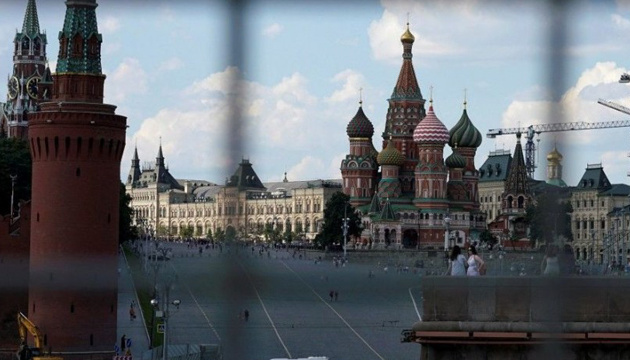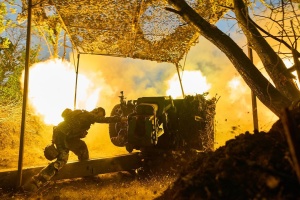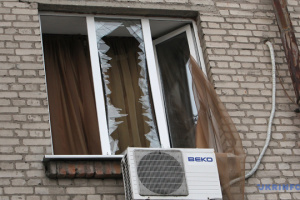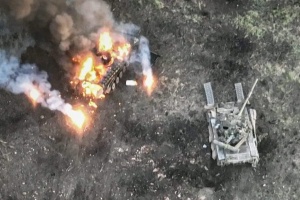
Do Russians Want War? What Is Behind Intrusive Proposals of the Kremlin “Peacekeepers”?
They were mentioned with different levels of determination by:
- Sergey Naryshkin, head of the Foreign Intelligence Service of Russia, on October 14;
- Sergey Lavrov, Russian Minister of Foreign Affairs, on October 13;
- Valentina Matvienko, Chair of the Russian Federation Council, at the G20 Speakers of Parliaments Summit in Indonesia on October 6;
- Kremlin spokesman Dmitry Peskov on 4 October;
- Russian President Vladimir Putin in an address on the illegal annexation of the occupied territories on September 30, as well as during meetings with Turkish President Recep Erdoğan and Indian Prime Minister Narendra Modi at the Summit of the Shanghai Cooperation Organisation in Samarkand on September 16;
- Leonid Slutsky, chair of the State Duma Committee on International Affairs, LDPR leader, on September 25.
Ukraine ignores such proposals of “peacekeepers,” demonstrating its determination to liberate the territories occupied by Russians militarily. And Western partners are increasing the amount of military assistance to Ukraine. The Centre for Strategic Communication explains what is behind the “peacekeeping” initiatives of the Kremlin, and why peace talks are currently impossible.
Why are Russians talking about negotiations?
Having lost its strategic initiative on the front, the Kremlin was forced to declare mobilization (for the first time since World War II!) and to proclaim in haste the annexation of the occupied territories.
Russian propagandists only raise the degree of anti-Ukrainian hysteria, already openly justify genocide, and consider a nuclear strike. Why, then, did the authorities (including Putin) talk about negotiations?
There are several obvious motives.
First, the Russians are interested in an operational pause that will allow them to accumulate strength for a new strike:
- to conduct training for the mobilized soldiers and combat coordination of units formed from them (rather than use the untrained “cannon fodder” sporadically at the front as Russia does now);
- to replenish the stockpiles of weapons and ammunition both by loading its own military-industrial complex and with the help of friendly dictatorial regimes of Belarus, Iran, and North Korea.
Secondly, the Kremlin is trying to consolidate the newly occupied territories and stop the offensive of the Defence Forces of Ukraine by formalizing the new demarcation line.
Thirdly, the Russians are trying to demonstrate to the world the readiness to compromise and the “negotiation inability” of Kyiv and to shift the responsibility for the fact that the war continues to the victim of aggression. The Kremlin may hope that the West will press Ukraine to end the war by satisfying the aggressor’s appetites. That is why these proposals are voiced on international platforms.
The gained time will be used by the Russians to achieve a numerical advantage over the Defence Forces of Ukraine, and the occupied territories will be used as a springboard for a new offensive.
Why are the “peace” initiatives of the Kremlin unanswered?
Both Ukraine and Western partners understand the insincerity of the statements of the Kremlin leadership and the interest of the Russians in an operational pause. The attempt to annex four Ukrainian oblasts once again demonstrated the total disregard for international law and Ukrainian sovereignty and the Kremlin’s unwillingness to engage in a genuine dialogue.
It is worth remembering that Ukraine has repeatedly declared intentions for peace initiatives, both before and after the full-scale invasion.
But already after the Normandy Four summit in Paris in December 2019, Putin was no longer interested in meeting with Ukraine’s President Volodymyr Zelenskyy.
Ahead of the invasion, Western leaders urged the Russian dictator to avoid making the fatal error. Zelenskyy expressed readiness for direct negotiations with Putin, but this initiative was rejected in the Kremlin. On the first days of the full-scale war, the Ukrainian president repeatedly publicly appealed to Putin with an offer to meet for peace talks.
The negotiations between the delegations of Ukraine and Russia, which took place in March in Belarus and Turkey, were conducted by the Russians in a dominant position, with obviously unacceptable demands.
Even today, after a series of painful defeats of the Russian army, the Kremlin talks about the negotiations exclusively “on its own terms”, without naming said terms. This demonstrates that the only format that Russia finds acceptable is Ukraine’s capitulation.
On September 30, the National Security and Defence Council of Ukraine responded to Russia’s announcement of the annexation of Kherson, Zaporizhzhia, Donetsk, and Luhansk oblasts with a decision stating “the impossibility of negotiations with Russian President Putin.” On the same day, Volodymyr Zelenskyy effected this decision by his decree. The Ukrainian president confirmed his readiness to sit down at the negotiating table with the next Russian leader in his video message.
The current Russian political leadership only convinced Ukraine and its partners that it is not just pointless but also dangerous to negotiate and agree on something with the Kremlin. Therefore, negotiations are impossible given the fact that:
- Russians’ motives are obvious; the Kremlin demonstrates that it is not abandoning the goal of destroying the Ukrainian state and Ukrainians as a nation;
- the aggressor’s actions are aimed at destroying the current world order and the system of international security;
- the Russian leadership speaks exclusively in the language of ultimatums and is intractable;
- strengthening of the Russian army during a pause in hostilities will lead to new victims and destruction;
- Russia is committing genocide against Ukrainians in the occupied territories. Murders of civilians, torture, rape, deportations of civilians and forced mobilization are just some of recorded war crimes committed by Russians. Only the expulsion of the occupiers can save people’s lives.
The “peacemaking” statements of Putin and his henchmen should not mislead anyone. By announcing another annexation, announcing mobilization, and nuclear blackmail, the Russian leadership clearly demonstrates its aggressive intentions. Proposals for negotiations are nothing more than an attempt to buy time and prepare for a new stage of aggression.
Just as the Minsk agreements concluded in 2014-2015 did not lead to lasting peace, any new attempts to negotiate with Putin are doomed to fail. But if Minsk allowed to turn the war in the Donbas into a low-intensity conflict and postpone a full-scale invasion for several years, this time, we are talking about a few months at best. That is how long it would take to form and coordinate new units after mobilization in Russia.
Center for Strategic Communication and Information Security




